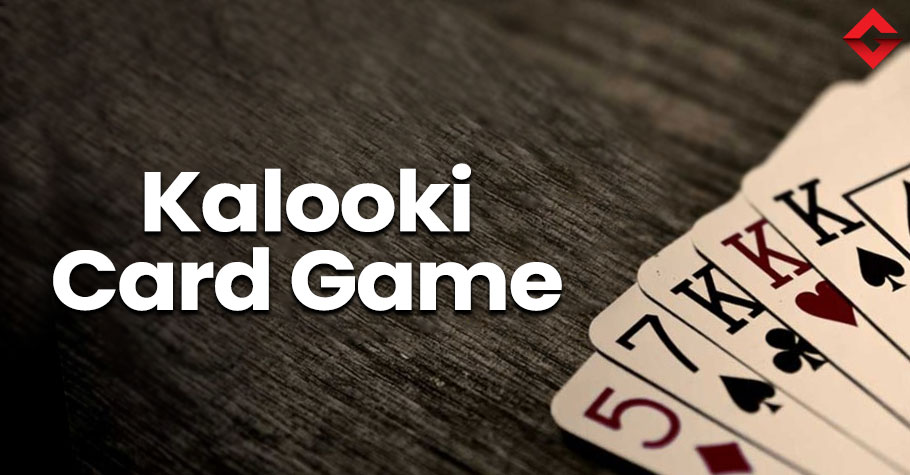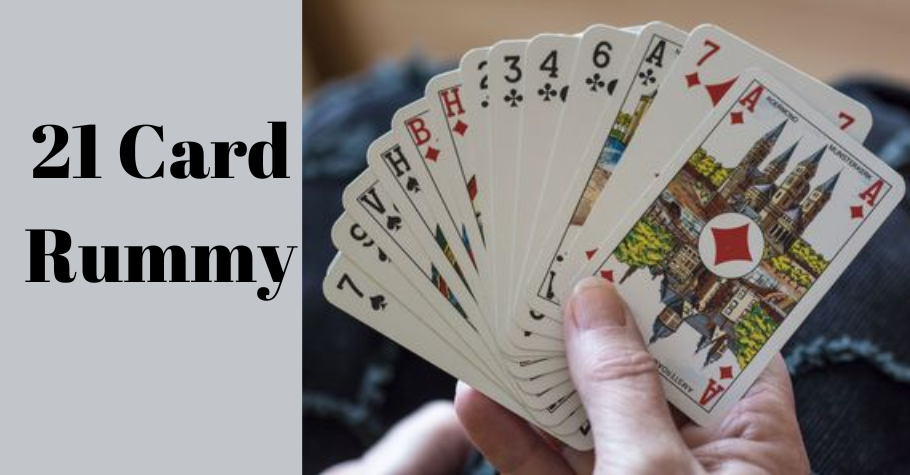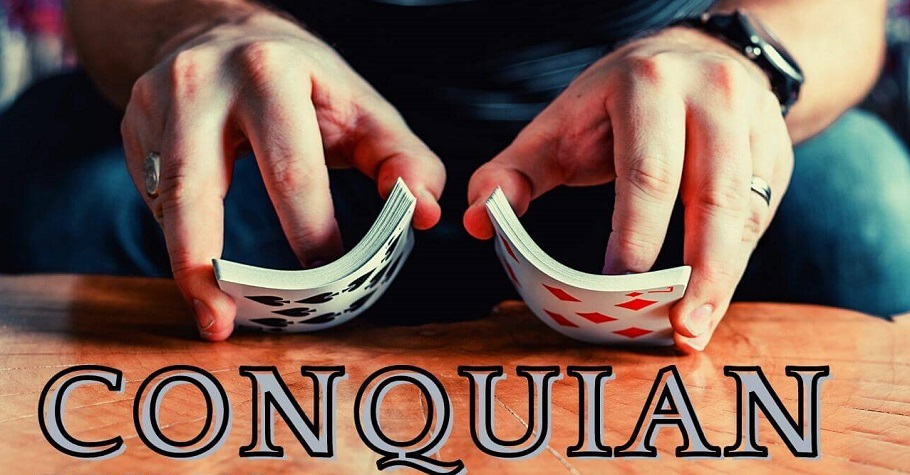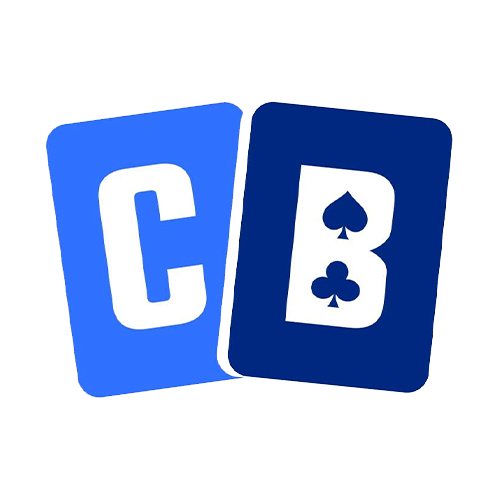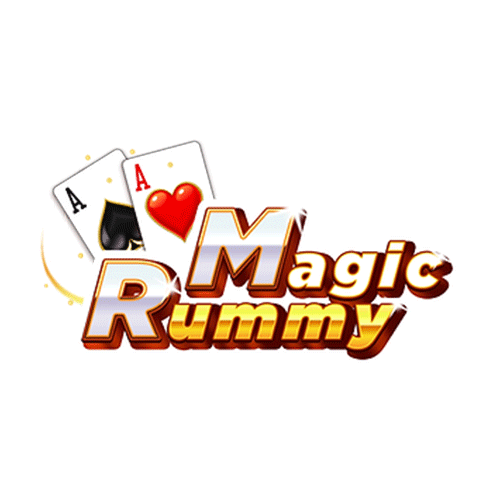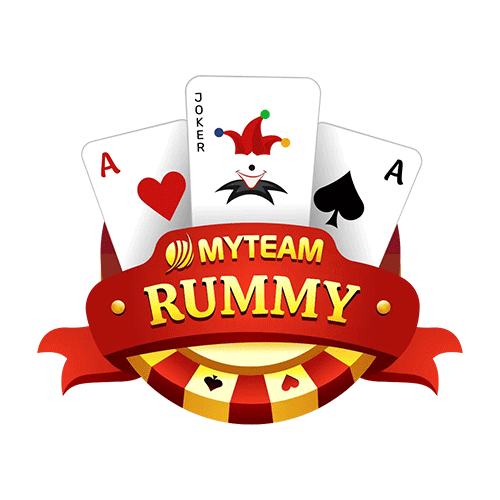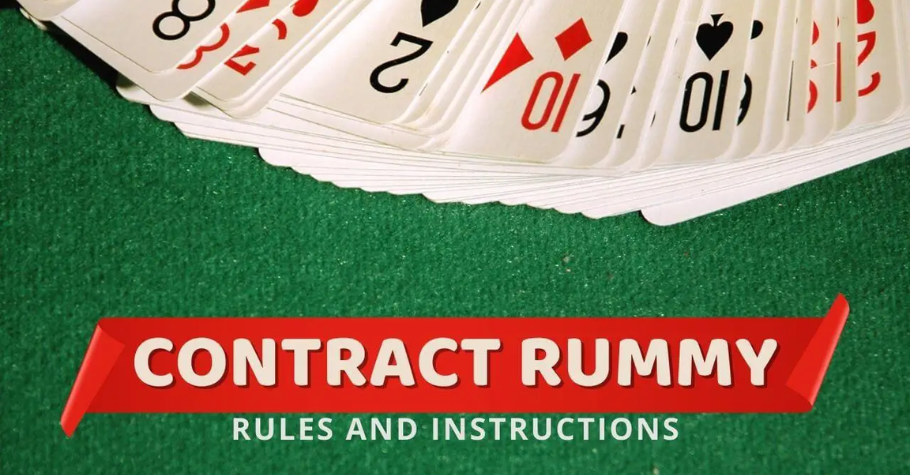 Rummy
Rummy
What Is Contract Rummy? How To Play This Game?
The number of rummy variants that are available for players to play is countless. Besides, the number of people that play this card game is also massive all across the globe. Different variants of rummy are played in different corners of the world. And if you are bored of playing the usual rummy game, believe us, you will never run out of variants of rummy to try.
In this article, let’s look at one such variant – Contract Rummy. We will talk about what contract rummy is and how you can play this interesting variant of rummy.
What Is Contract Rummy?
Contract Rummy is a popular variation of the classic card game Rummy. It is played with multiple decks of standard playing cards and is typically enjoyed by 3 to 5 players. The game’s objective is to be the first player to fulfill all the predetermined ‘contracts’ or sets and runs of cards, leading to the accumulation of points over several rounds. Contract Rummy is not only engaging but also requires strategic planning and skillful card manipulation.
Contract Rummy is a different variation of rummy that is very similar to Progressive rummy, another rummy variation. The two games are almost identical, except for the fact that in the Progressive Rummy version, every player is dealt an additional card at the start of each round.
ALSO READ: How Do You Play Kalooki Card Game?
How to Play Contract Rummy?
Decks
A game of Contract Rummy is generally played with four people. It makes use of two Joker variant Anglo-American standard 54-card decks. These two decks are combined into a single deck, also known as a stock. If more than four people are playing the game, they can simply add another deck of cards for every two additional players. That means three decks for up to six players, four decks for up to eight players and so on.
Rounds
The contract rummy game is broken up into seven rounds, each round having its own unique rules in order to meld.
- Round 1: 6 cards, 2 Books.
- Round 2: 7 cards, 1 Book and 1 Run
- Round 3: 8 cards, 2 Runs
- Round 4: 9 Cards, 3 Books
- Round 5: 10 Card, 2 Books and 1 Run
- Round 6: 11 Cards, 1 Book and 2 Runs
- Round 7: 13 Cards, 2 Books of 3 cards and 1 Run of 7 cards.
Additionally, Round 7 also has another unique rule that cards may not be discarded in the 7th round.
Contracts
Contract Rummy makes use of two types of melds, also known as contracts. These include Runs and Books. The contracts in each successive round are as follows.
- Two groups of three (six cards)
- One group of three and one Sequence of four (seven cards)
- Two sequences of four (eight cards)
- Three groups of three (nine cards)
- Two groups of three and one Sequence of four (10 cards)
- One group of three and two sequences of four (11 cards)
- Three sequences of four and no discard
Runs
Just as poker has straight, contract rummy has runs. Cards that are incremental in rank are known as runs. In typical rummy games, these runs are also required to be of the same suit. For example, 7 ♦ , 8 ♦ , 9 ♦ is a run. A run can be placed in the board only if it is at least three cards long.
Books
Books are simply groups of cards in which all of them have the same rank, irrespective of their suit. For example, 9 ♦ , 9 ♣ , 9 ♠ . Just like runs, books must also be at least three cards long when they are played.
Players may also play off of a meld that is already present on the board. For example, in case player A places a book of three 9 cards, and player B has a 9 in their hand, Player B decides to place their 9 on the board, and the book is already placed by player A.
Deal
Every contract rummy game begins with a deal. The Dealer is either drawn for or voluntarily chosen. By being drawn means random cards are dealt and the player with the highest card becomes the dealer.
The player sitting clockwise to the dealer must start the round. In the following round, this player will become the dealer. The format is similar to that in poker. In the first four rounds, every player is dealt 10 cards, respectively. Similarly, in the last three rounds, players are dealt 12 cards instead of 10.
Once every player has been dealt their cards, the remaining cards are placed in the centre of the board as a ‘stock.’ A stock is basically a deck from which all players are allowed to draw from when their turn arrives. To begin the game, the topmost card of the stock is turned over, face-up, and placed next to the stock. This represents the discard pile.
At the time of a player’s turn, the player must draw one card from the stock or the discard pile. At the end of their turn, they must discard one card too, except in Round 7.
Melding
In order to meld, a player must have the required number of cards on the board post their meld.
As an example, in Round 1, if a given player has the cards in order to make two books, the player may meld right away. However, say in Round 3, the players must either have the cards to make two separate runs of four cards each, or they must add cards onto another player’s meld until they can form a smaller run.
A round continues to play until a player is ‘out,’ or the player has run out of cards in their hand. Whenever this occurs, the player gets ‘0’ points for the round. Similarly, all other players must compute their penalties based on the cards they have in their hands at the end of the round. The penalty point values are mentioned in the scoring section of this article below.
End
The game is over whenever a player is ‘out’ in the seventh round. Any prior penalty totals that the player has are calculated at this moment. The player who has the fewest points at the end of all seven rounds eventually wins the game.
Rules Of Contract Rummy
Contract Rummy is said to be similar to another variation of the rummy card game called ‘May I?’ However, Contract Rummy has several unique rules from the ‘May I’ variant. This includes joker-swapping and the special rules for Round 7.
If a player has used a joker in a Book or a Run, as per the official rules any player with a card that matches the joker’s value within a given meld can exchange that joker card for a natural card. The player can place the joker in their hand instead.
Similarly, players can place individual natural cards on pre-existing melds on the board. Melds, on the other hand, must adhere to the round’s required amount of played cards and contain at least three cards in order to be played. Remember that suits do not matter for books, but they do matter for runs.
Scoring
In most rummy-style games, melds do not result in points for the player. Instead, the goal of melds in rummy is to get rid of the cards in your hand to avoid penalty points at the end of the round.
Cards that remain in your hand at the end of the round are counted in this manner, and their scores are added together. Remember that in Contract Rummy, the player with the lowest score wins.
Here is a concise score chart to tally together penalty points at the end of a round:
| Card | Scoring Value |
| Ace | 20 Points |
| Joker | 20 Points |
| 2 | 20 Points |
| K, Q, J, T | 10 Points |
| 9-3 | 5 Points |
Hands
Here is an example board and hand in Round 4 of Contract Rummy:
- Board: 2 ♦ 3 ♦ 4 ♦ 5 ♦ 3 ♦ 3 ♣ 3 ♠ 6 ♣ 6 ❤ 6 ♠
- Hand: 10 ♦ Q ♣ A ♦ 5 ♠ 3 ♣ 8 ♦ 6 ❤ 8 ❤ K ♦ Joker
Here, the joker and the 6 can be used in the run, or else the 6 can be used in the book as the 8s are combined with the Joker in order to make a unique Book on the given board. This would be the most ideal move, as it takes 4 cards out of your hand.
Contract Rummy’s ever-changing contracts and the need for careful planning and card management make it an exciting and dynamic game, appealing to both casual and seasoned card players alike. It’s a blend of strategy and skill that keeps players engaged and coming back for more challenging and enjoyable rounds.
For more news and updates, keep reading Gutshot Magazine. Follow us on our social media handles Facebook, Instagram, Twitter, and Telegram.

Amarylisa Gonsalves is a Content Writer at Gutshot Magazine. Advancing from a marketing background, she found her calling in writing. She takes delight in exploring genres and is a curious learner. Patient and ambivert, she believes in letting her work speak for itself. Apart from content writing, she finds solace in writing poetry by manifesting herself through words. Additionally, she adores indulging in drawing and DIY crafts.
More News
Comments
Top 15 Rummy Rooms
-
Deccan Rummy
Sign-up & Get FREE ₹25
Offer: 100% Bonus for your first deposit up to Rs.5,000 - Use Code 'Welcome' Register -
WinZo Rummy
Win Up To ₹25 Crore
Offer: Get ₹550 Joining Bonus For Free Register -
CardBaazi Rummy
Sign-up with code GUTSHOT10
Offer: Get ₹10 Real Cash Bonus Register -
Playship Rummy
Sign-up with Gutshot
Offer: Add ₹50 Get ₹100 Extra Gamecash on 1st Deposit, also get 100% Extra Gamecash on next 29 Deposits Register -
Magic Rummy
100% Assured Welcome Bonus
Offer: Rs.510 in Cash Bonus Register -
RummyPrime
Sign-up with GUTSHOT
Offer: Get 200% bonus up to ₹12000 + ₹175 Extra Cash on your 1st Deposit Register -
PlayerzPot Rummy
Play Rummy on PlayerzPot
Offer: Get 30% rakeback Register -
BatBall11 Rummy
Sign-up with code GUTSHOT
Offer: Get ₹50 FREE Register -
FantaFeat Rummy
Sign-up with GUTSHOT
Offer: Sign-up and get ₹100 FREE Register -
Rummy Culture
Get Rs.300 on sign-up
Offer: First deposit bonus - 200% up to Rs.10,250 Register -
Rummy Passion
First Deposit Offer
Offer: Use code "WELCOME" for 100% Bonus up to Rs. 2,000 Register -
Rummy Villa
Code: "WELCOME100"
Offer: Sign-up and get 100% bonus up to Rs.2,500 Register -
GetMega Rummy
Sign-up with code GUTSHOT
Offer: Deposit Min ₹100, Win Bonus Up To ₹10,000 Register -
MyTeamRummy
Sign-up with Gutshot
Offer: Get upto 15,000* bonus Register





